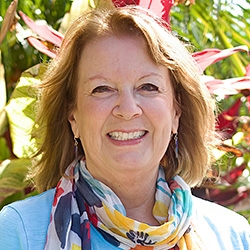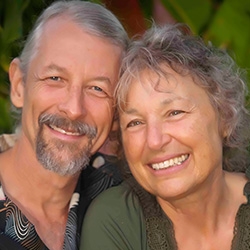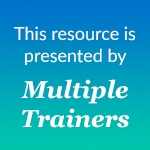

Search Results: openness
-
In listening to what our emotions tell us, and embracing what we do not know, we begin the path of courage. Even though our culture tells us not to, revealing our imperfections is where we can deeply connect. Living our lives more courageously honest, can shift us towards inspiring one another. Read on for how some people experienced this in coming together to transform one woman's heroine addiction.
-
- Cultivate thriving interpersonal relationships
- Discover paths to move beyond anger, blame, and judgment
- Connect with the Divine essence in other people
- Experience greater ease and joy in all your interactions
-
In thinking about your relationship with fear and doubt, see what happens when you ask yourself "What do you trust?”. Here's an example response to that question, and how it can open new perspective, soften fear, and bring trust to new depths.
-
Trainer Tip: Notice where you're judging or blaming people for not meeting your needs. Strive instead to notice and name the related feelings and needs longing to be met. Ask a question to check with the other person about what they want and need. This can open up the conversation towards mutually beneficial solutions.
-
We can shift from being absorbed and identified with our inner chatter and feelings to being the space of awareness of these things. Observe your breath. Then observe your mind generating thoughts. Next, feel sensations of your body, particularly the difficult ones. Now, connect with the underlying energy of needs. Ask your unconscious mind for universal needs words related to what you now notice, think and feel.
-
The American mythos of Independence Day is that liberty, equality, and opportunity are for all. Yet since the country's formation, these needs have been for some at the expense of others. It started with the brutal robbery and genocide of Native Americans and slavery of Africans. And this theme continued for generations in various forms, including how we related to other peoples, countries, and the ecosphere. To achieve true justice, liberty, and opportunity for all we may need to overcome the ego's sense of separation. Compassionate noncooperation may also be key.
-
Have you ever had the experience of being truly heard and understood by another person? Or felt the astounding, breath-taking connection that arises when someone sheds all preconceived notions, gives you their full presence, and really sees you?
We call this The Amazing Power of Empathy – and the power does not stop there.
- Cultivate thriving interpersonal relationships
- Discover paths to move beyond anger, blame, and judgment
- Connect with the Divine essence in other people
- Experience greater ease and joy in all your interactions
-
Distinguishing between needs and strategies to meet needs is crucial for solving conflict. For example, the need for peace can be met through various strategies beyond solitude or gratitude. Similarly, sex is a strategy. Sexual expression is the need behind it, and can be met in various ways to meet that need without having sex itself. Such flexibility can foster creativity and deeper connection, enhancing relationships.
-
-
-
-
Ask the Trainer: The link between storytelling, being "right," and connecting to an unmet need.
-
Exploring how to share NVC in a school environment where others may not yet understand its value.
-
Ask the Trainer: Exploring how unconscious motivations influence the needs we identify and express.
-
Build the capacity to choose vulnerability, deepen connection, and live with authenticity.
-
Discover how self-empathy fosters healthy, supportive relationships with children and others.
-
This explores four types of feedback: destructive, constructive, by demonstration, and dialogue.
-
The NVC Circle of Life is a mandala illustrating the process and consciousness of Nonviolent Communication. Mandala literally means "sacred circle" and symbolizes wholeness, balance and harmony.
-
Learn how your inner relationship forms the basis for Focusing and NVC.
-
Some of my core beliefs make experiencing gratitude difficult . For example, it’s difficult to celebrate others or myself when I think I have to prove my worth in order to be accepted. So much energy goes into proving myself, there’s little left for celebration.

Quick Links
Subscription Preferences
Stay In Touch!
Looking for ways to keep up with NVC Academy news, get special offers, free resources, or words of inspiration? Here are five ways to stay engaged:
















